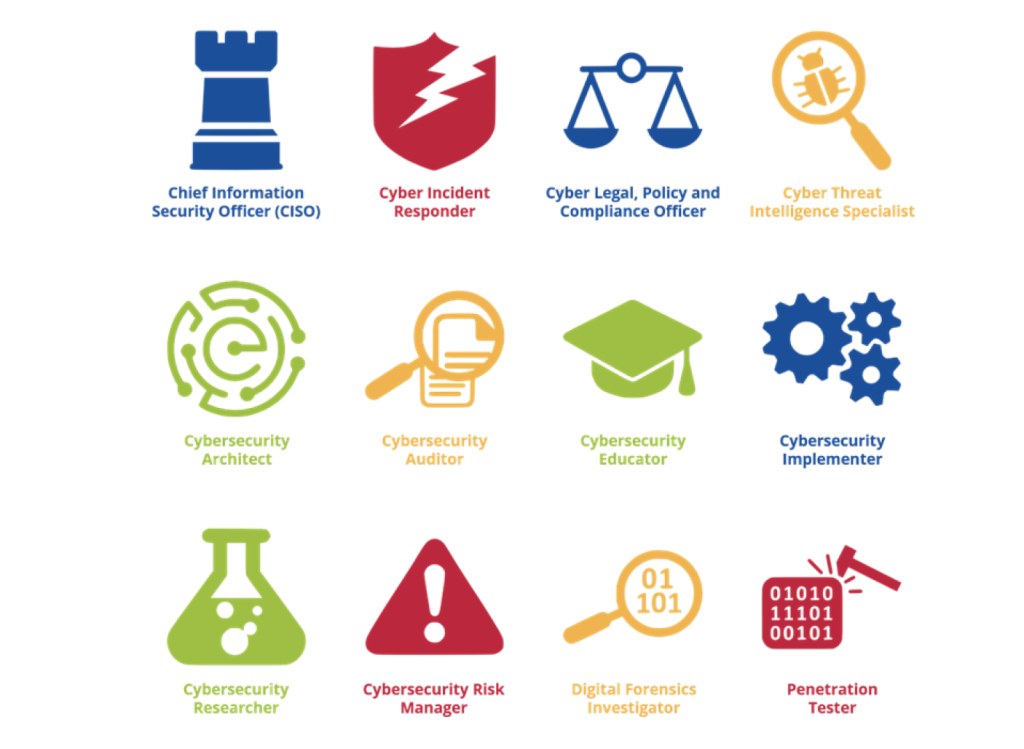The European Cybersecurity Skills Framework (ECSF) in Latvian, prepared by the Latvian Information and Communication Technology Association (LIKTA) in cooperation with CERT.LV, is now available. The framework has been designed to be easily understandable and comprehensive enough to provide adequate in-depth knowledge of cybersecurity, while also offering sufficient flexibility to allow for adaptations based on the needs of each user. By incorporating perspectives from all stakeholders, the framework is applicable to different organizations and supports the development of cybersecurity professionals across various roles.
The ECSF targets the staff of the organization’s management team responsible for cybersecurity functions, cybersecurity specialists, junior specialists, and cyber-entities. Additionally, it caters to providers of various training programs in both the public and private sectors, industry associations, market researchers, and policy makers.
The framework consists of two documents:
- The ECSF Roles profile document. These profiles offer a common understanding of the main objectives, tasks, and skills required in a professional cybersecurity context. They serve as a valuable source of knowledge to create skill and knowledge profiles for cybersecurity specialists.
- The ECSF User Manual document. This manual provides a comprehensive overview of the main scope, guiding principles, and feasibility of the ECSF. The primary objective of the manual is to make ECSF easily accessible, understandable, and usable for all stakeholders who actively participate in cybersecurity or require suitably qualified cybersecurity specialists.
The 12 typical cybersecurity professional role profiles are designed to be easily understandable and provide alternative approaches based on context, perspective, and individual needs. By offering such versatility, the ECSF becomes applicable to diverse organizations and countries, while also facilitating the development of all cybersecurity professions.

User manual structure:
- The first chapter includes an overview of the main challenges that justify the need to develop a cybersecurity skills framework, along with identifying the target audience for this work.
- The second chapter outlines the design principles of the ECSF and highlights the main benefits of its implementation.
- The third chapter explains the various applications of the ECSF from different perspectives, showcasing its versatility and relevance in various contexts.
Main benefits of using ECSF:
- Ensure a common terminology and understanding of cybersecurity professionals across the EU.
- Identify a set of critical skills needed for the cybersecurity workforce to support its continuous growth and development.
- Promote coherence and harmonization in cybersecurity education, training, and workforce development programs.
ECSF is closely linked to the current European ICT professional environment, ensuring seamless implementation and widespread visibility. It leverages existing experience and structures, establishing consistent connections with relevant EU ICT professional standards and frameworks. The profiles defined within the ECSF are carefully designed to align with and complement European legislation and regulations, aiming to enhance ethical practices in the European market. Moreover, the ECSF takes into account data and privacy protection requirements outlined in European regulations and norms, as well as the common roles demanded by the European market and the ICT sector’s European standards and frameworks.
Document prepared by experts of the Ad-Hoc working group of ENISA. With the involvement of experts with different backgrounds, the framework development process took a multi-faceted approach to avoid any bias in specific areas of interest.
The document’s localisation in Latvian has been provided as part of the European Platform for Digital Skills and Jobs in Latvia (No 2020-LV-IA-0217) project of the European Commission.
@EuropeanComission

